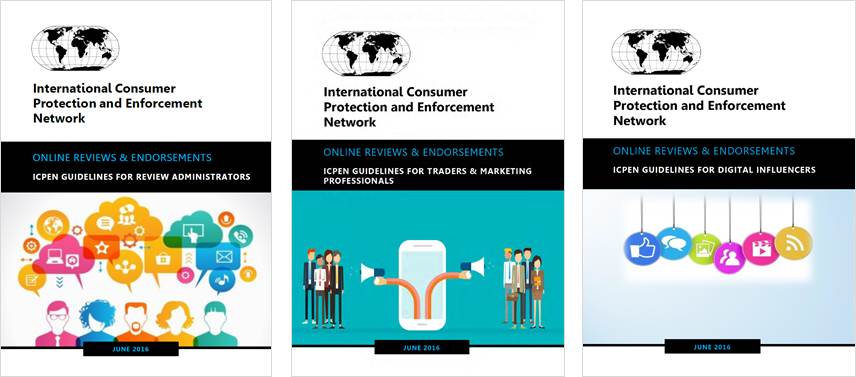Washington, DC - Online reviews and endorsements can be key to consumers’ decision-making. In fact, surveys show that over 70% of American consumers turn to online sources before making a purchase. Advertisers already should know about FTC principles for making sure that online reviews and endorsements are honest and not misleading.
Turns out, consumers around the world are also scrolling through reviews on their smartphones, scouring social media for recommendations, and sorting through buyer feedback on websites. If you advertise internationally, or advise clients who do, you’ll want to review new guidance published today by the International Consumer Protection Enforcement Network (ICPEN) (link is external).
ICPEN is a network of consumer protection authorities from nearly 60 countries that engage in cross-border cooperation. It coordinates a cross-border complaint website, econsumer.gov, which allows consumers to file complaints against businesses based in other countries. Under the lead of its current president, the U.K.’s Competition and Markets Authority, ICPEN members have shared information and traded their enforcement experiences with online reviews and endorsements.

Based on this work, ICPEN today released three related guidance documents tailored to the categories of participants involved in online reviews and endorsements: (1) review administrators; (2) traders and marketing professionals; and (3) digital influencers (bloggers, vloggers, tweeters, contributors to online publications, etc.).
Like the FTC’s work in this area, the ICPEN guidance reflects basic truth-in-advertising principles such as:
- Endorsements must be truthful and not misleading, and
- Material connections between an endorser and marketer of a product or service that would affect how people evaluate the endorsement must be disclosed clearly and conspicuously.
More specifically, the guidance for review administrators recommends being:
- Equal and fair in the collection of reviews;
- Alert and proactive in the moderation of reviews; and
- Transparent in the publication of reviews.
The guidance for traders and marketing professionals sets out the following key principles:
- Don’t prevent consumers from seeing the whole picture of genuine, relevant and lawful reviews; and
- Don’t write, commission or publish fake reviews.
And the guidance for digital influencers advises them to:
- Disclose clearly and prominently whether content has been paid for;
- Be open about other commercial relationships that might be relevant to the content; and
- Give genuine views on markets, businesses, goods or services.
The documents (link is external) provide examples and practical advice on implementing these principles, and also contain links to laws, business guidance, and enforcement policy statements for ICPEN member countries including Australia, Canada, Denmark, France, Norway, the United Kingdom and the United States. At their core, they reflect basic truth-in-advertising principles in ICPEN member countries. However, the guidelines don’t provide shelter from liability in any ICPEN member country.
The Federal Trade Commission is a member of ICPEN.
